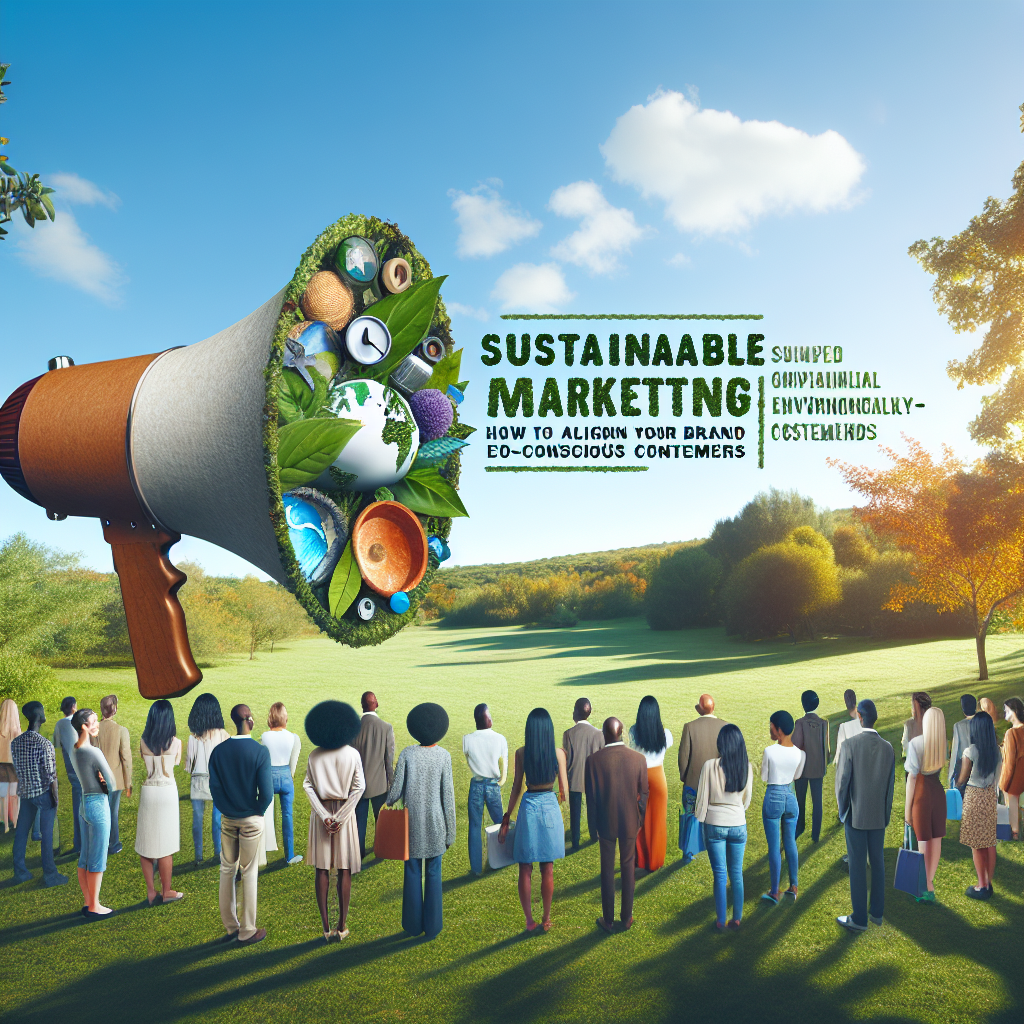Sustainable Marketing: How to Align Your Brand with Eco-Conscious Consumers
In recent years, sustainability has transitioned from being a mere buzzword to a vital component of business strategy. As climate change concerns escalate, eco-conscious consumers are increasingly seeking brands that not only acknowledge environmental issues but actively contribute to solutions. This shift necessitates a change in how brands communicate, engage, and operate. Here’s a guide on how to adopt sustainable marketing practices that resonate with eco-aware consumers.
Understanding Sustainable Marketing
Sustainable marketing embodies the principles of ecological integrity, social equity, and economic viability. It’s about promoting products and services in a manner that reflects a commitment to the environment and society. In essence, sustainable marketing aligns with the values of consumers who prioritize eco-friendly goods and practices.
Why It Matters
The rise of eco-conscious consumers reflects a broader cultural shift. According to a 2021 survey by Deloitte, nearly 80% of consumers believe that businesses are responsible for addressing environmental issues. This demographic includes millennials and Gen Z, who are especially driven by sustainability in their purchasing decisions. Brands failing to embrace sustainable practices risk losing relevance and consumer trust.
Steps to Align Your Brand with Eco-Conscious Consumers
-
Embrace Transparency
Consumers today demand authenticity. Be open about your sourcing, manufacturing processes, and sustainability initiatives. Providing detailed information about your supply chain not only builds trust but also showcases your commitment to ethical practices. Consider publishing an annual sustainability report to outline your goals, challenges, and achievements. -
Commit to Genuine Sustainable Practices
Sustainable marketing cannot be achieved through superficial or "greenwashing" efforts. Ensure your practices are genuinely sustainable, whether that means utilizing renewable resources, reducing waste, or engaging in fair trade practices. Sustainable innovation should be embedded in your product development and corporate strategy. -
Engage in Meaningful Storytelling
Create narratives that highlight your brand’s sustainable journey. Use storytelling to humanize your brand and connect emotionally with your audience. Share stories about how your products are made, the people behind them, and the positive impact they have on the planet. Utilize various channels, including social media, blogs, and videos, to disseminate these stories effectively. -
Leverage Social Media and Digital Marketing
Use social media platforms to engage with eco-conscious consumers directly. Share tips, educate your audience about sustainability, and provide updates on your initiatives. User-generated content can amplify your message, allowing consumers to share their experiences with your sustainable products and foster a community around your brand. -
Implement Sustainable Packaging
Packaging plays a crucial role in sustainable marketing. Consumers are increasingly scrutinizing packaging materials and their environmental impact. Consider using recyclable, compostable, or minimal packaging to reduce waste. Incorporating refillable options can also enhance sustainability and consumer loyalty. -
Partner with Environmental Organizations
Forge partnerships with non-profits or organizations focused on environmental conservation. Supporting causes that align with your brand values demonstrates a genuine commitment to sustainability. Such partnerships can also offer marketing opportunities, generating goodwill through community engagement. -
Focus on Education and Community Involvement
Educate your audience about sustainability through workshops, webinars, and informative content. Position your brand as a trusted resource in the eco-conscious community. Additionally, involve your customers in sustainability efforts, such as organizing community clean-up events or eco-friendly product launches. -
Adapt Based on Feedback
Always be ready to listen to your consumer base. Collect feedback through surveys and social media interactions to understand their needs and preferences better. Companies that adapt based on consumer insights will not only enhance their product offerings but also foster customer loyalty. - Monitor and Measure Impact
Regularly assess the impact of your sustainable marketing efforts. Develop key performance indicators (KPIs) to measure success, such as customer engagement, sales growth in sustainable products, or improved brand perception. This data not only informs future strategies but also demonstrates accountability to your consumers.
Conclusion
Sustainable marketing is more than just a trend; it is becoming a fundamental expectation for brands in today’s market. By aligning your brand with eco-conscious consumers through transparency, genuine practices, and meaningful engagement, you can forge deeper connections with your audience and contribute to a healthier planet. Embracing sustainability not only enhances your brand reputation but also fosters loyalty among a growing base of environmentally aware consumers eager to support businesses that reflect their values. The time to act is now; the planet—and your brand’s future—depends on it.














Leave feedback about this
You must be logged in to post a comment.